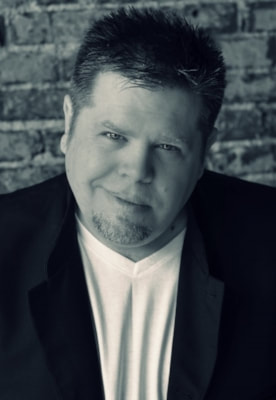
JOHN BUCHER is a renowned strategist, communicator, and cultural mythologist based out of Hollywood, California. Disruptor named him one of the top twenty-five influencers in Virtual Reality in 2018.
He is the author of six books including the bestselling STORYTELLING FOR VIRTUAL REALITY, named by BookAuthority as one of the best storytelling books of all time. John has worked with companies including HBO, DC Comics, The History Channel, A24 Films, The John Maxwell Leadership Foundation and served as a consultant and writer for numerous film, television, and Virtual Reality projects. Currently, he teaches writing and story courses as part of the Joseph Campbell Writers Room at Studio School in Los Angeles and at the L.A. Film Studies Center. He has spoken on 5 continents about using the power of story to reframe how products, individuals, organizations, cultures, and nations are viewed.
You can order John's book Master of the Cinematic Universe here.
Dave Watson: First, since your great book, Master of the Cinematic Universe, you began teaching at Studio School Los Angeles in the Joseph Campbell Writers’ Room. What does the future hold for storytelling?
John Bucher: Well Dave, I continue to find new and interesting ways to be a part of the storytelling community here and all over the world. Last year I taught in Dubai, Abu Dabi, Greece, as well as teaching courses at Studio School and the L.A. Film Studies Center. One aspect of the future I’ve become focused on is Virtual Reality. I’m also Continuing my exploration of the deep past with my work in mythology.
DW: Going with the deep past, does a streaming series allow a more cast exploration of mythological themes since they have much longer stories?
JB: Yes, as well as a greater opportunity for exploration of the mythological roots behind a story. One example is Stranger Things, though not directly based on mythology, the idea of an underworld is highly mythological.
DW: How does Studio School figure into your work?
JB: Studio School is an accredited college and it’s important in how it functions. We want to move graduates into the filmmaking world. Our instructors embrace mythology and it drives every aspect of storytelling, which is very visual.
DW: How did the Studio School start?
JB: It began as a partnership with Relativity Studios.
DW: Does it compete directly with film schools?
JB: Yes, with the American Film Institute, the New York Film Academy, and so on. Dr. Will Linn, who heads the Joseph Campbell Writers’ Room at Studio School, has deep roots in the myth community as well as relationships in the entertainments business.
DW: Is mythology playing a role at this year’s Oscars?
JB: Definitely. Black Panther has a mythological Afro-future-centric storyline that’s fascinating and exciting. Bohemian Rhapsody has an Orpheous-like character that ventures to the underground and tries to free his people.
DW: Then a reasonably-budgeted film such as Roma will come along...
JB: Roma is incredible. It’s main character feels like your average, everyday person who represents each of us. The same is often true of fairy tales.
DW: Finally, and though we’ve chatted before, what is your favorite cinematic moment? One that inspires you to this day?
JB: There are many, and one that sticks with me is the first eight minutes of Raiders of the Lost Ark. It’s when Indy encounters the idol, which actually represents fertility, leading to new birth. It also represents something new, new energy in the hero’s journey.
DW: I also remember the slowly-zooming camera after we first see the idol. It’s also a quiet scene in a fairly loud movie.
JB: Yes. We see the idol and Indy approaches it slowly, ponders it. I love the way he bends down, looks at it, wipes his face, then prepares his hands to take it. For me, it stood for something we want deeply and how we often hesitate to take it, but savor its presence, it put so much meaning into that scene, I still love it.
Clip: Raiders of the Lost Ark
Founder and editor of Movies Matter, Dave Watson is a writer and educator in Madison, WI.

